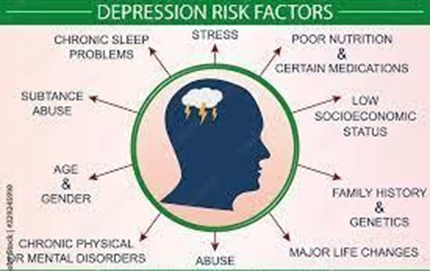A nurse caring for a patient prescribed a selective serotonin reuptake inhibitor (SSRI) will develop outcome criteria related to what outcome?
Decreased extrapyramidal symptoms
Reduced levels of motor activity
Logical thought processes
Mood improvement
The Correct Answer is D
A. Extrapyramidal symptoms are more commonly associated with antipsychotic medications rather than SSRIs.
B. SSRIs might have varying effects on motor activity, but this is not a primary outcome for their use.
C. While SSRIs may indirectly contribute to cognitive improvements, the primary expected outcome revolves around mood changes rather than thought processes.
D. SSRIs are primarily used to treat mood disorders like depression and anxiety, and the main goal of their use is to improve mood and emotional symptoms. Therefore, the expected outcome criteria often relate to mood improvement.
Nursing Test Bank
Naxlex Comprehensive Predictor Exams
Related Questions
Correct Answer is B
Explanation
A. While assessing coping skills is essential, in a crisis situation, determining immediate risks to the client's safety takes precedence.
B. Assessing for psychotic thinking is crucial to address immediate safety concerns. Psychosis can present significant risks and requires immediate attention.
C. While support systems are important for long-term recovery, determining immediate safety concerns is a priority.
D. Identifying the cause of the crisis is relevant but may not be the immediate priority when the client's safety is at risk due to potential psychotic thinking.
Correct Answer is B
Explanation
A. Elevated levels of serotonin are associated with a potential treatment for depression but aren't considered a primary risk factor for developing depression.
B. Past history of childhood trauma, such as abuse or neglect, is a well-established risk factor for the development of depression later in life.
C. Being an only child is not recognized as a primary risk factor for depression.
D. Recent history of stressful positive life events might not be a primary risk factor for depression; in some cases, it could be a protective factor.

Whether you are a student looking to ace your exams or a practicing nurse seeking to enhance your expertise , our nursing education contents will empower you with the confidence and competence to make a difference in the lives of patients and become a respected leader in the healthcare field.
Visit Naxlex, invest in your future and unlock endless possibilities with our unparalleled nursing education contents today
Report Wrong Answer on the Current Question
Do you disagree with the answer? If yes, what is your expected answer? Explain.
Kindly be descriptive with the issue you are facing.
